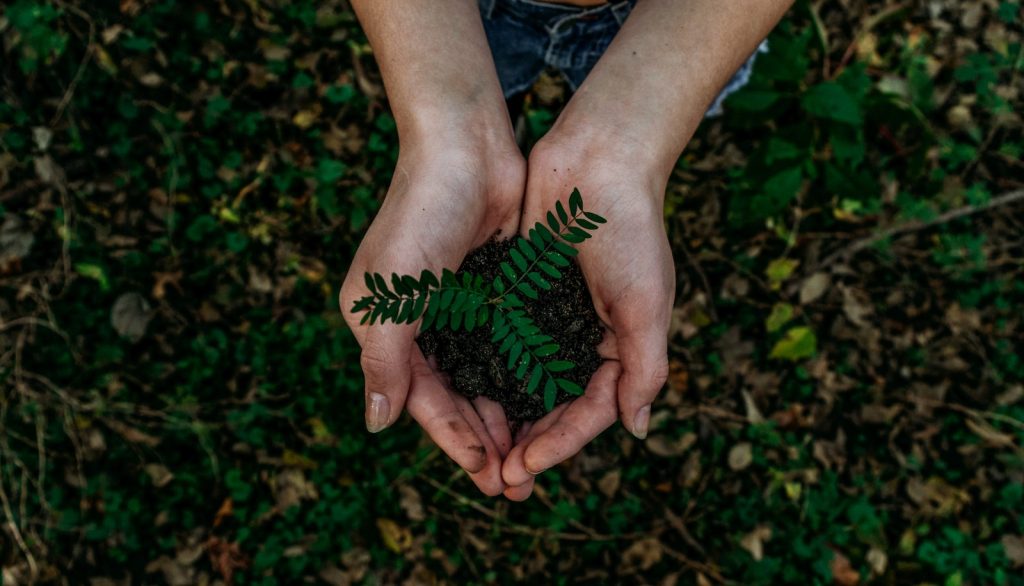It is estimated that human activity is responsible for over 75% of greenhouse gas emissions, causing global warming and other climate abnormalities. We must do our part to protect the future of our planet by making sustainable, eco-friendly choices that reduce our individual impact. Here are fifteen ways to making sustainable choices to benefit the environment.
1. When Making Purchases, Reuse and Repurpose
When making purchases that can be reused and repurposed, opt for those instead of single-use items. This means anything from reusable water bottles to shopping bags to washable rags, and anything else that can be re-used.
2. Buy Secondhand
When purchasing clothes or furniture, try to buy them secondhand. Shopping secondhand at consignment stores or thrift stores not only aids the environment but often yields good quality products at a fraction of the cost.
3. Educate Yourself
When purchasing products, make sure to research their green credentials. Read labels to see where the product came from or if it has certifications, such as the EPA’s Energy Star or an LEED rating.
4. Avoid Products With a Lot of Plastic
Many products, especially food-related items, contain layers of unnecessary plastic packaging. Try to avoid these items and opt for those packaged without plastic.
5. Go Organic and Local
When possible, try to buy locally produced, organic foods. Not only does this help local economies, but it also cuts down on emissions from transportation.
6. Ditch the Disposables
Plastic forks, paper plates, and other disposable items can wreak havoc on the environment. Try to use reusables around the house.
7. Reduce Your Energy Usage
Reducing your energy usage can have a big impact on the environment. Unplug electronics when not in use and use LED light bulbs, which are more energy-efficient.
8. Recycle
Be sure to recycle items whenever possible instead of tossing them into the trash. Look for curbside pickup in your area or take your recyclables to a nearby drop-off location.
9. Compost
Organic materials don’t belong in the trash. Start a compost bin in your home to efficiently break down plant matter and put it to use in your garden or yard.
10. Shop at Eco-Friendly Shops
Do your research and find eco-friendly stores in your area that sell organic produce, bulk items, and sustainable products.
11. Plant Trees
Trees are a great way to offset carbon emissions and help clean the air. Planting a few trees around your yard can make a big difference.
12. Avoid Chemical Cleaners
Many common household cleaners contain chemicals that are harmful to the environment. Opt instead for natural cleaners like vinegar and baking soda.
13. Limit Water Usage
Be aware of your water usage and try to limit unnecessary water waste. Fix any leaky faucets or pipes and opt for a low-flow showerhead.
14. Eliminate Meat and Dairy
The production of beef and other livestock is one of the leading causes of global warming. You don’t have to go vegan, but try to limit your meat and dairy consumption.
15. Take Public Transportation
Alternate transportation choices such as public transit, biking, or walking can help reduce your individual carbon footprint.
Final Thoughts
Making sustainable choices isn’t hard and can make a huge difference to the health of our planet. The fifteen choices outlined above are just a few of the simple steps we can take to start living more sustainably. If we all do our part, we can create a cleaner and healthier future for our planet.
Frequently Asked Questions
1. What is sustainable living?
Sustainable living is the practice of reducing one’s environmental impact through mindful consumption and production. Practices like recycling and composting, using renewable sources of energy, avoiding over-consumption, and using public transportation are all forms of sustainable living.
2. What is an example of an eco-friendly product?
An example of an eco-friendly product is a reusable water bottle. Reusable water bottles are made from stainless steel or nontoxic, BPA-free plastic and can replace the need for disposable plastic water bottles, which can take hundreds of years to decompose.
3. What is energy efficiency?
Energy efficiency is the use of technology and practices that reduce energy demand while maintaining the same level of energy output. Using energy-efficient light bulbs, installing solar panels, and unplugging electronic devices when not in use are all examples of ways to increase energy efficiency.
4. What is the difference between sustainable and sustainable living?
Sustainable is an adjective that refers to the practice of reducing one’s environmental impact. Sustainable living is the action of implementing and carrying out sustainable practices.
5. How can I reduce water waste?
There are several ways to reduce water waste. Fixing leaky faucets can help reduce water waste, as can using a low-flow showerhead. Taking shorter showers, being mindful of water usage when brushing your teeth or washing dishes, and collecting rainwater can also reduce water waste.
6. What is the importance of recycling?
Recycling is important because it is one of the most efficient ways to reduce the amount of waste generated by human beings. Not only does recycling reduce the amount of waste in landfills and the ocean, but it also reduces the need to mine for natural resources like coal, oil, and metals, which can greatly harm the environment.
7. What is the benefit of using renewable energy sources?
The primary benefit of using renewable energy sources is that they are sustainable and don’t deplete the Earth’s natural resources. Renewable energy sources like wind, solar, and geothermal energy also reduce greenhouse gas emissions and are better for the environment than non-renewable sources, like coal and oil.
8. Why is it important to buy secondhand?
Buying secondhand is important because it reduces waste and keeps items that would otherwise end up in landfills out of them. Shopping secondhand also saves money and can lead to other sustainable practices, like upcycling.
9. What is the importance of composting?
Composting is important because it is a natural way to break down organic matter, such as food scraps, that would otherwise end up in landfills. Composting helps to create nutrient-rich soil and can help reduce the need for chemical fertilizers.
10. How can I reduce my energy usage?
There are several steps you can take to reduce your energy consumption. Unplugging electronics and appliances when not in use, using LED light bulbs, and investing in energy-efficient appliances are all great ways to reduce your energy consumption.




